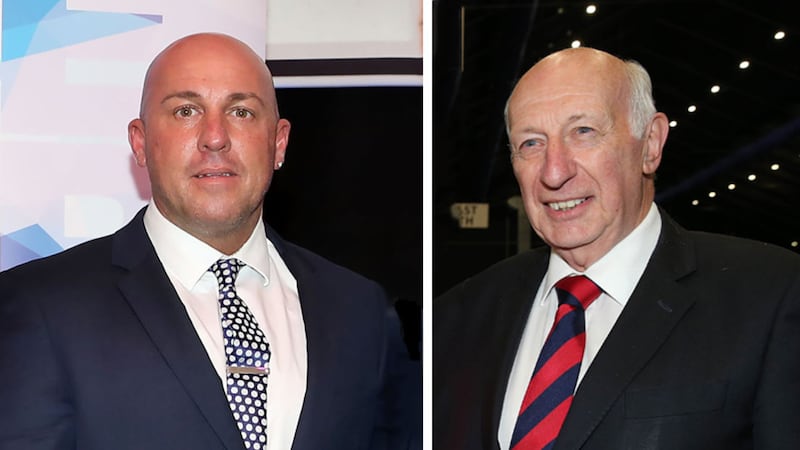Governments giving money to deprived and neglected communities is always something to be welcomed.
It is usually the government's fault those communities are neglected in the first place and funding communities is always preferable to chucking taxpayers' money at big business.
In Northern Ireland there's a history of throwing millions in incentives at companies to encourage them to set up shop here only for them to take themselves off a few years later leaving workers out on the street.
Many years ago I covered a story of an Invest NI funded factory that promised skilled manufacturing jobs to people in Belfast. Turned out the skilled labour was all based in Asia only for the finished product to be shipped to Belfast and stuck in a packet with a 'Made in Britain' sticker.
Before too long, they left the area after receiving public money.
And why wouldn't anyone, business or community sector, take advantaged of free money being dished out by politicians with only short term goals and no long term strategy?
And so in that same vein I give you the Social Investment Fund (SIF) a £90m pot of delicious money we were told would help those areas in most need across the north.
Those areas most impacted by the Troubles with statistically high unemployment, educational underachievement, poor mental and physical health and housing.
On Tuesday night the excellent investigative reporter Stephen Dempster aired a year long BBC Spotlight investigation into SIF, its recipients and its failings.
It was a damning assessment of what could have been a real opportunity, but has in the main been squandered because of the cronyism that thrived under a Stormont executive that had became cocky in its arrogance and unaccountability.
A fund that should have helped those most in need was instead dished out by a number of steering groups raising questions about the independence of the 'independent' members appointed by Sinn Féin and the DUP.
In many cases millions was being allocated to organisations whose members and employees actually sat on the steering groups.
There was no tendering process, no opportunity for smaller, less established and connected groups to pitch for valuable funding and no oversight or accountability.
This didn't always mean the money went to rubbish causes, but it did create a culture of clientism, where mutual advantage was being created.
This amounted to what was described on Spotlight as 'insider trading' and in nationalist areas that meant groups seeming to be loyal and friendly with Sinn Féin benefited.
However, in loyalist areas that clientism, those mutual benefits and rewards were easier to track.
SIF originated at a time when DUP leader Peter Robinson lost his East Belfast Westminster seat to the Alliance Party's Naomi Long.
In that 2010 election Robinson got a bloody nose and so the current courting of hardline loyalists for votes can be traced back to that very day.
It's been a successful tactic, albeit one that has cost millions in public money. The DUP, which always sold itself as the party of law and order is now on the defensive over its links to the UDA. Arlene Foster was pictured with self confessed UDA commander Dee Stitt at a time when the paramilitary organisation is still very much active in north Down.
DUP MLA Robin Newton was sitting in on board meetings of the UDA-linked Charter NI, lobbying for funding and helping appoint board members while at the same time sitting as Stormont Speaker, refusing questions to scrutinise SIF allocation of a £1.7m windfall to that group.
When the DUP increased their vote in almost every hardline loyalist area during the last assembly election it came as no great surprise to anyone.
This was the outworking of a seven year plan to court the loyalist vote through relationships with paramilitary leaders, which would be all well and good if it wasn't for the fact that those same paramilitary groups represent what are still the most active criminal gangs in Northern Ireland.








